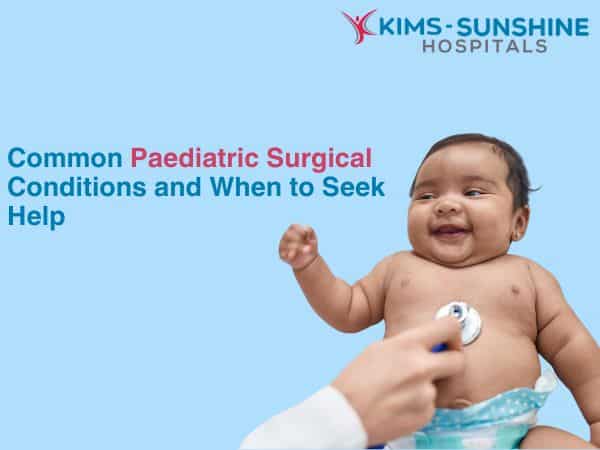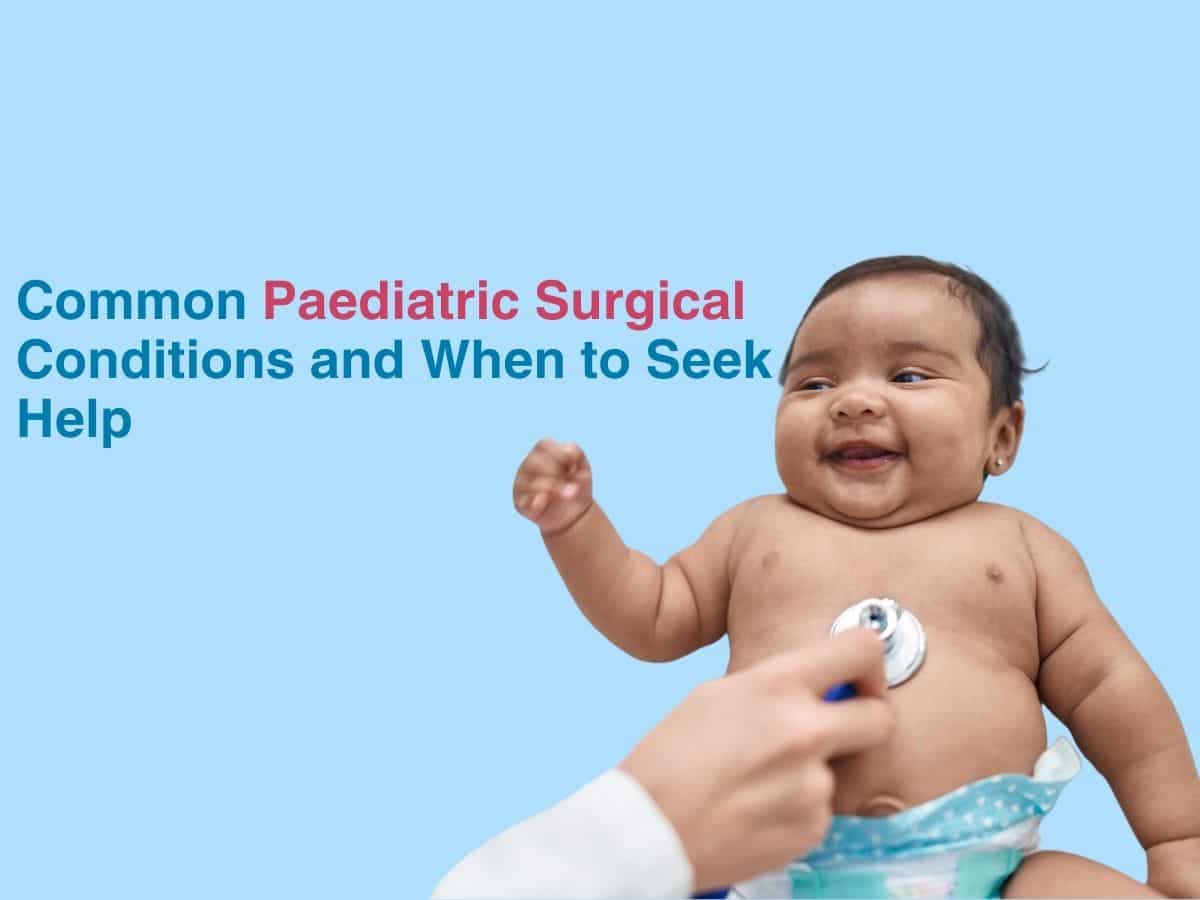
Common Paediatric Surgical Conditions and When to Seek Help

Children are special and hence demand specialised care when something goes wrong with them. Paediatric surgeons are proficient in exactly this- identifying the condition that seems to affect little ones and then dealing with them in the swiftest and most painless way possible. Some conditions may require surgical intervention while others may be monitored for a while before deciding what can be done with it. Kids are of course very resilient and will get better soon. It is time you as parents know what signs to look for, so that you get the help your child needs even quicker.
What are the Most Common Surgeries for Children?
Your child may need surgery or specialised medical care if they have congenital defects or other issues like the following-
Undescended testes in males: This is when the testes do not descend into the scrotum. This can be corrected with surgery after the child is 3 months of age. The best time is before they turn 1, so as to prevent any long term damage to the testis.
Reflux in very young children: Babies may cough a lot, may not gain enough weight or feed poorly due to reflux. Most symptoms tend to go away before the child turns two. Other times may require medication or a specialised treatment plan to deal with it.
Pyloric stenosis : The stomach outlet muscles harden and don’t let food out into the intestine, in which case it is forcefully vomited out. Continued stenosis can cause large scale dehydration. Fluids will be administered. Surgery is also done when needed- to loosen the ring of muscles in the stomach, so that food can then pass as needed to the intestine.
Inguinal hernias: When the intestine or any other organ in the abdomen does not form within the abdominal wall and gets out- it looks like a soft mass which can be pushed back in without much pain. Normally these hernias just stay on but if you notice them getting hard, or your child is in pain – then you should get help immediately.
Constipation: If your newborn has not pooped within the first 48 hours of birth then you should get them checked. If your child needs an enema to poop then it is worrisome too. They may also complain of abdominal pain, cramps and pain while pooping. Diet changes normally work the best but you should not go around giving them laxatives unless it has been prescribed by a doctor.
Soft tissue masses are all surgically removed or treated with medication as needed.
Tongue tie: Children won’t be able to feed or latch properly and hence will not gain weight or grow well. Surgery may be recommended or the doctor will see what may work for you.
Jaundice: Worms or gallstones, congenital issues etc. may cause a blockage of the bile duct, leading to obstructive jaundice.
Liver issues need to be looked into ASAP to prevent liver damage.
Appendectomy: to remove the appendix
Gastrostomy tube: If your child has cerebral palsy or some other condition where they may not be able to eat properly, then the doctor may recommend a G-tube which will directly provide nutrition into the abdominal wall. Parents can learn how to manage the G-tube effectively.
Congenital heart defects can cause issues like blue lips, bluish nails or breathing very rapidly. Surgery will be done after the issue is diagnosed correctly.
Spinal issues like scoliosis or other deformities can be corrected surgically but recovery is long. Children will need plenty of physiotherapy to get better.
Cleft lip and palate: if your child is not able to feed, speak or looks different, then you may have to go in for surgery to correct the cleft lip.
Conclusion
We think this guide to common childhood surgical conditions and symptoms should be helpful for all parents- as they can learn more about signs and symptoms and also identify whether their children have any such issues. If you notice your child crying, or they are in pain and not able to grow properly- i.e. they don’t meet developmental milestones properly, then you should consider getting them looked at by a child specialist. They will be able to find what is wrong and then come up with the right solution so that your child can get better in no time. Getting help at the right time is very important, for the best results. And lastly, be there for your child so they know they can depend on you for everything they need!
Frequently Asked Questions
How do I choose the right paediatric surgeon for my child?
When should I seek emergency care for my child’s condition?
What are the risks of surgery in young children?
Are there non-surgical alternatives for common paediatric conditions?
What is the recovery process like for children after surgery?

Dr. Vidyasagar Chandankere
M.B.B.S, M.S Ortho, Fellowship in Paediatric Orthopaedics
Senior Consultant Paediatric Orthopaedic Surgeon






